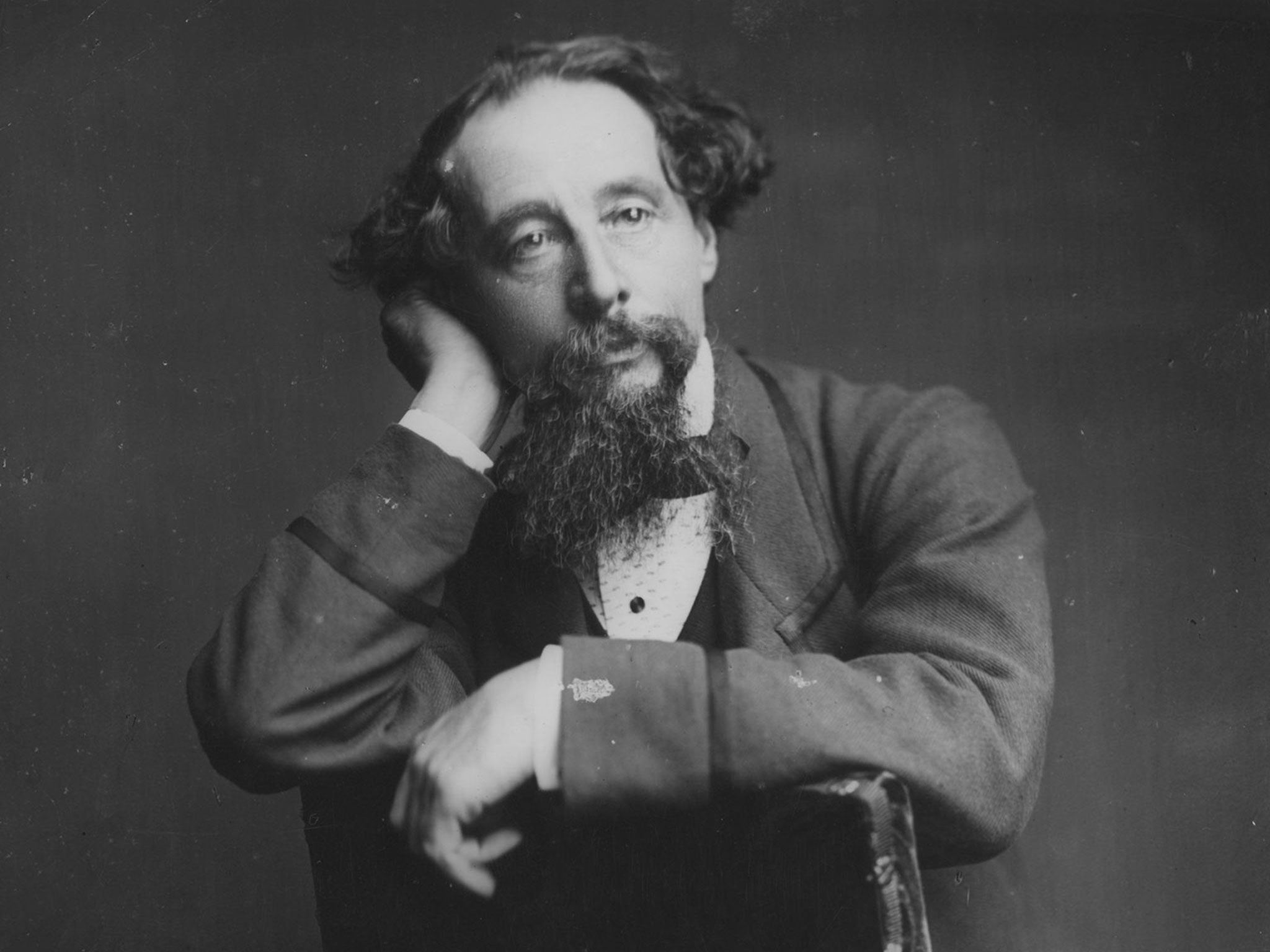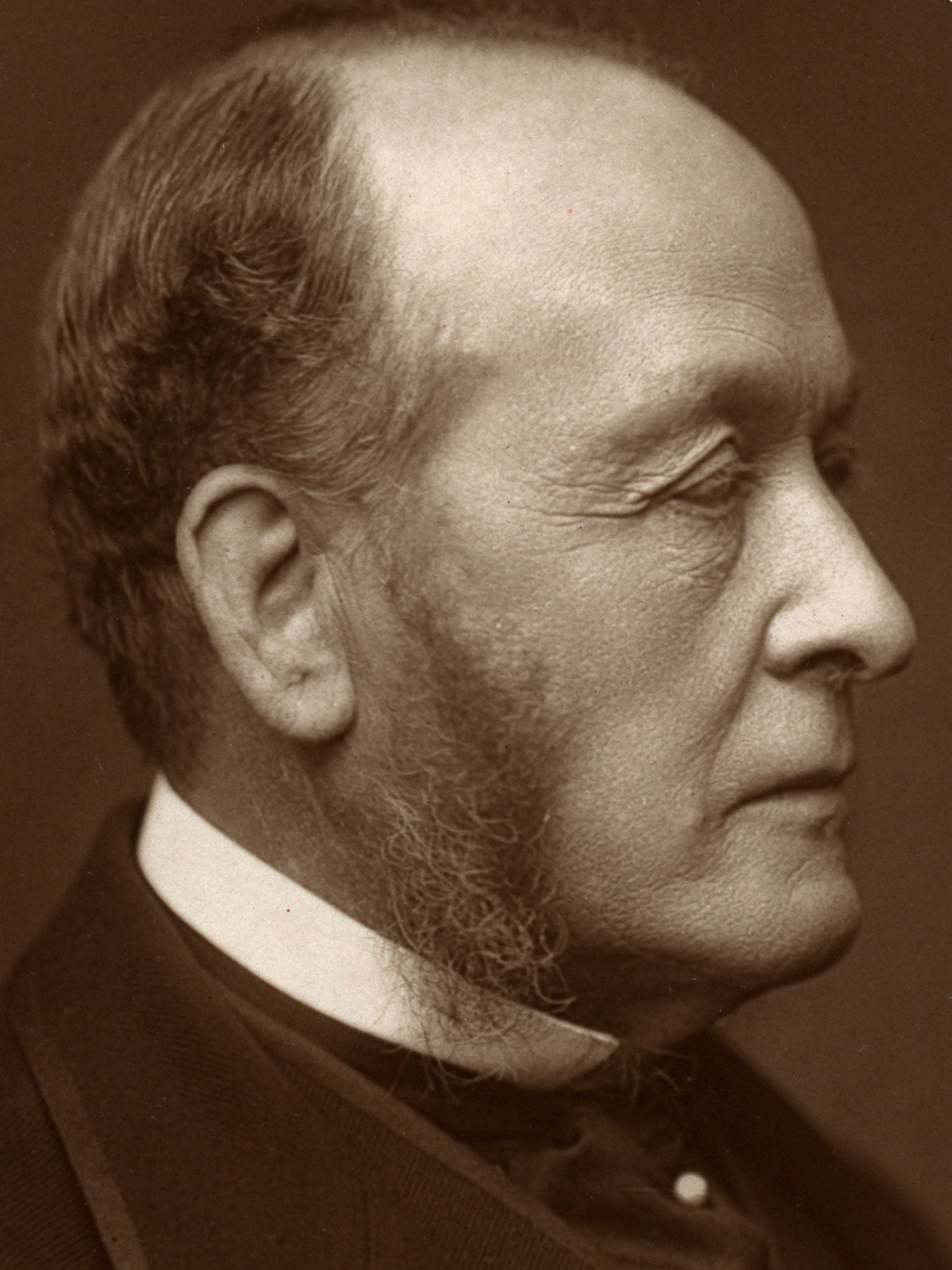Charles Dickens revealed as author of essay defending 'sensational' newspaper reporting
'What Is Sensational?' castigates the Conservative MP Gathorne Hardy

Charles Dickens is today revealed as the co-author of a diatribe defending “sensational” newspaper reporting on the plight of the poor following the unveiling of a lost ledger cataloguing his work and that of other giants of Victorian literature.
Experts on the author and social campaigner said the discovery of the collection of a periodical owned and edited by Dickens, which is annotated to name the authors of thousands of anonymous articles, was the most important discovery concerning the author in a generation.
The 20-volume collection of All the Year Round, discovered by an antiquarian book dealer, contains notes by Dickens identifying up to 400 authors of articles, poems and short stories published in the magazine, effectively creating new works by authors including Elizabeth Gaskell, Wilkie Collins and Lewis Carroll.
But the periodicals, whose existence was first reported by The Independent, also add to the body of work written by Dickens himself.
Two works not previously known to have been directly penned by the writer are listed as having been written by him, including a polemic titled “What Is Sensational?”.
The piece, published in March 1867 and reprinted in The Independent, castigates a Conservative MP Gathorne Hardy for criticising Victorian periodicals, such as his own, for their unflinching reporting of the squalid deaths of two paupers that year.

Dickens, a prominent campaigner against the destitution faced by the Victorian poor, wrote: “Is the commonest humanity, the narrowest charity, sensational? What is Mr Hardy’s opinion of the New Testament? A sensational performance surely! The good Samaritan? A highly sensational character.”
The piece, which amounts to a ferocious defence of the duty on writers to give voice to the dispossessed, was originally attributed to Joseph Parkinson, one of a coterie of aspiring writers and reformers who contributed to the magazine.
But Jeremy Parrott, the book dealer and Dickens scholar who realised the importance of the bound collection of All the Year Round only after buying it unseen from an online dealer in Wales, said the annotations show the Oliver Twist author not only supplied the idea for the article but named himself as its principal author.
Dr Parrott said: “The fact that Dickens names himself first as a co-author indicates he was intimately involved in its composition. The title plays on the then very current vogue for ‘sensational’ literature. For Dickens it is not fiction that is sensational but the appalling facts about how the poor are neglected and mistreated.”
The unveiling of the annotated journals has caused excitement among academics and aficionados of Victorian literature. Dickens, who published All the Year Round between 1859 and 1870, adhered to the convention that only the weightiest and best-known contributions (for example, his own Tale of Two Cities) appeared in print accompanied by the author’s name, leaving the vast majority of contributions unattributed.
The bound volumes, which it is thought were probably an office copy kept by Dickens and his chief sub-editor, William Wills, lift the veil on more than 150 years of debate by tying authors to particular articles, including two by Elizabeth Gaskell.
Leon Litvack, a Dickens researcher at Queen’s University in Belfast and trustee of London’s Dickens Museum, said: “This is probably the most important find for scholars in my lifetime. It gives us an insight into the links between Dickens and other authors, whose names have been all too often lost in the mists of time. It will be of inestimable value to scholars.”
The collection will also cast new light on the working practices of Dickens,. Professor Michael Slater, author of a leading biography on Dickens, said: “This will give us a much completer picture of journalism in London in the 1860s. Dickens was quite a masterful editor who was always re-writing passages. This would greatly annoy Mrs Gaskell, who of course had her own profile as an author.”
Join our commenting forum
Join thought-provoking conversations, follow other Independent readers and see their replies
Comments
Bookmark popover
Removed from bookmarks